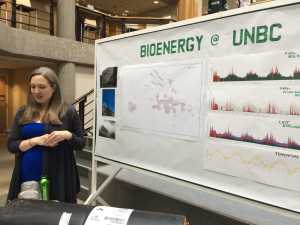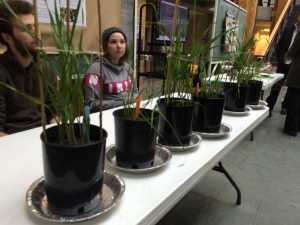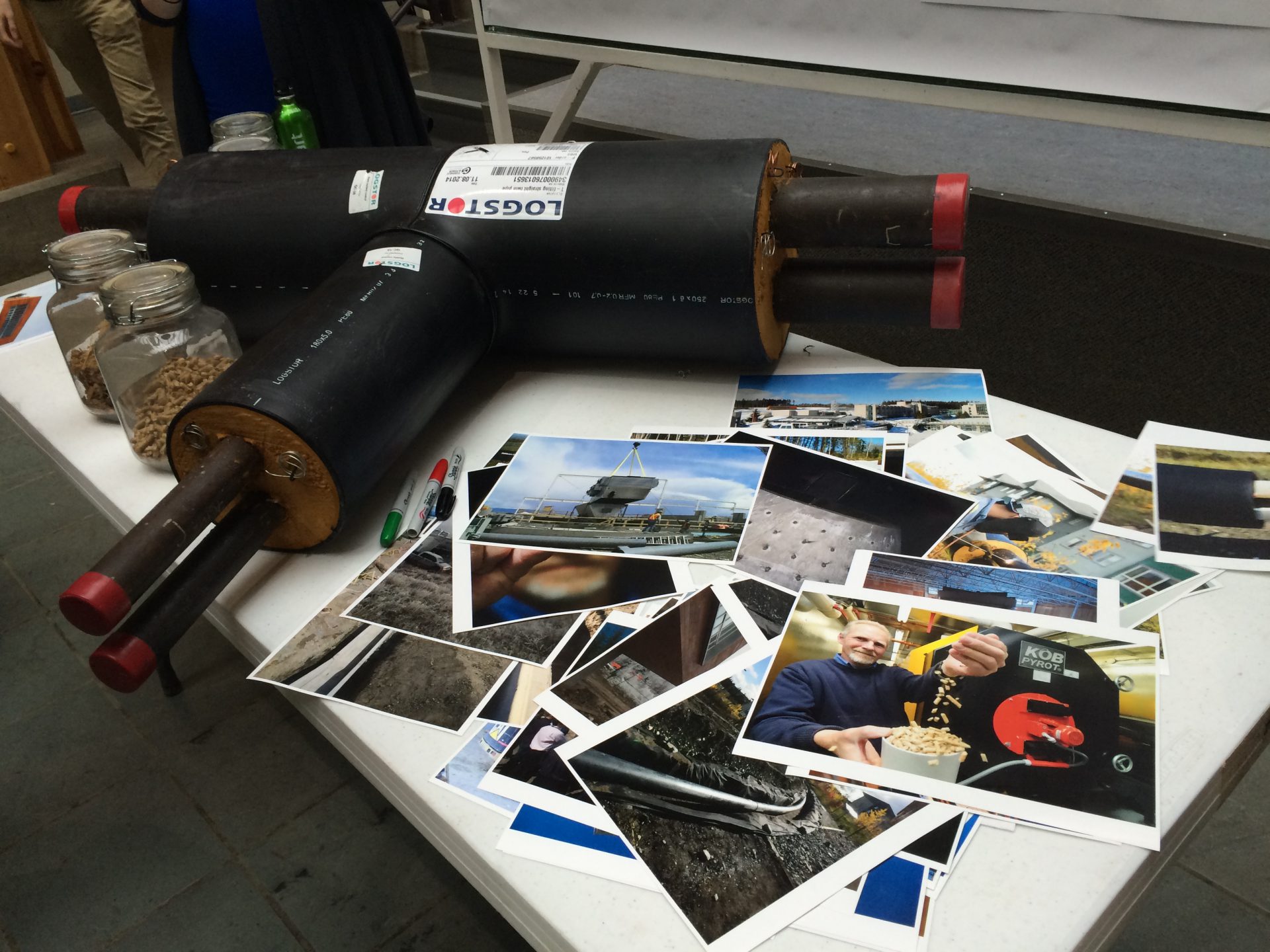 Professors, students, and faculty are showcasing their research at UNBC’s Bioenergy Day.
Professors, students, and faculty are showcasing their research at UNBC’s Bioenergy Day.
Since its installation in 2011, the University’s Bioenergy Plant takes wood waste from local sources and converts it to heat 10 buildings on campus.
Assistant Director of Facilities David Claus says Lakeland Mills provides the hog fuel for the plant.
“We get our wood primarily as waste from Sawmill operations. As long as those operations are milling pine beetle kill wood, that’s the sort of wood we use up here.”
UNBC’s Green Initiative began in 2009 with the installation of the Wood Pellet Plant, with the Bioenergy plant being installed in 2011.
Claus says the initiative has evolved to include students in future efforts.
“It started as a project to keep UNBC green, and now it’s really to give us the infrastructure so we can build from there. Once we have the hot-water pipes in the ground, then the only question is how do we actually produce the hot water?
The City of Prince George currently operates its own bioenergy plant, sending heat to several public buildings, including the Courthouse and Wood Design and Innovation Centre.
Another project on display at Bioenergy day involves adding leftover ash from the Mill to soil.
The ash is currently shipped to landfills, but Dr. Michael Rutherford says it could be beneficial to soil.

“The benefit of the ash is that it’s a liming material, and it also adds nutrients the plants need. So why put it in a landfill?”
On hand were several plants being used as part of the experiment, some with ash-treated soil, and some without.
Once they are harvested in two weeks, the students will test the PH levels of the soils, and look at how the plants responded to the test.
“A lot of them are first-year students, so they take a lot of chemistry, physics, and biology… So they don’t get to do full-term experiments. This is a good opportunity for them to actually set up an experiment, let it go for about six weeks, take part in the actual harvest, and then they have to write up the results. It’s kind of like a mini-thesis.”
UNBC’s plant produces enough energy to heat the University and reduce fossil fuel consumption by 85%.
Something going on in the Prince George area you think people should know about?
Send us a news tip by emailing [email protected].






